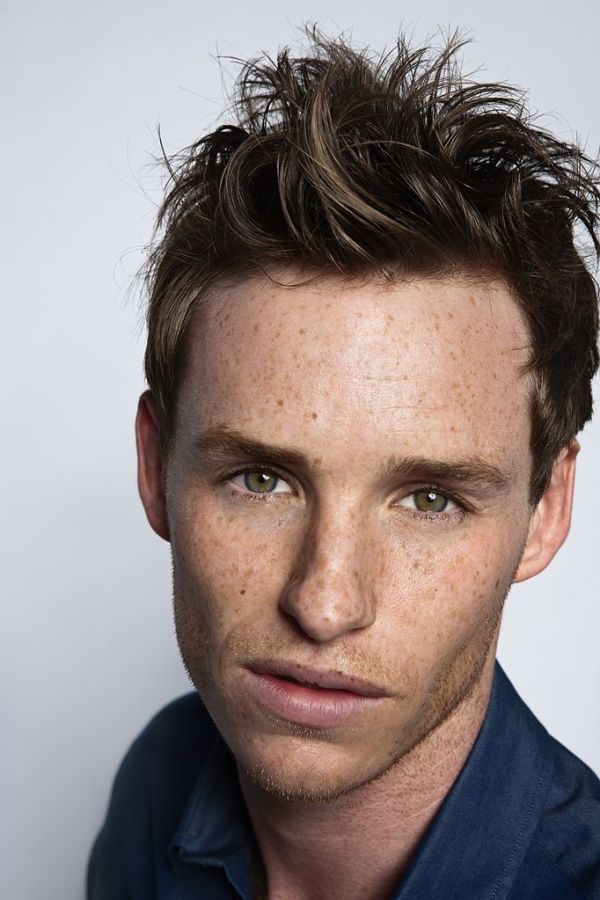A conversation with actor Eddie Redmayne
The Theory of Everything actor
November 21, 2014
Can there be a greater challenge than to portray one of the most intelligent minds in the scientific community?
Such a question is best reserved for actor Eddie Redmayne, who portrays world-renown astrophysicist Stephen Hawking in the recently released biopic “The Theory of Everything.”
Describing himself as being “filled with excitement and yet hit with a sucker punch of fear” when he received the call confirming his position for the lead role, Redmayne, who had chased after the opportunity quite aggressively, wanted to truthfully portray Hawking and his love for his wife and children during a lesser-known chapter of their lives.
Starting at Cambridge University, where young Stephen Hawking would begin his romance with Jane Wilde as well as pursue his doctorate in physics, “The Theory of Everything” follows his diagnosis at age 21 with amyotrophic lateral sclerosis (ALS) and how, with unparalleled hope and love, he and Jane managed to defy all odds.
I had an opportunity to learn about Redmayne and his thoughts on the film in a conference call with other college reporters across the United States. I most enjoyed his refreshing sincerity and lively elocution which provided much insight into the talents of a man receiving quite the Oscar-buzz. Here’s what he had to say:
Q: How did you mentally and physically prepare to take on such a complicated role?
Eddie Redmayne: When I got cast, I had four months before filming started and so when you’re lucky enough to play someone as extraordinary as Stephen, I tried to educate myself on the science in the one sense, and learning about ALS was incredibly important. I went to a neurology clinic in London called the National Hospital for Neurology and Neurosurgery, Queen Square, and I would go every week or two and meet with a specialist there who would introduce me to people suffering [from motor neuron diseases]. Some of them would invite me into their homes, and I would not only see the physical effects of ALS and the emotional ones, but also the extraordinary humor and amazing passion for life that many people who are suffering from this disease have. Finally, it was meeting Stephen and Jane and Jonathan and their children that was the last element just before we started filming. I tried to approach it in a three-dimensional way.
Q: How has studying and portraying Stephen Hawking in “The Theory of Everything” influenced your theory of everything?
Redmayne: Taking the phrase as an abstract looking at life, really, the amazing thing about spending time with Stephen was that he was given two years to live at 21, and he described that every day and moment beyond that was a gift for him. How he pulled himself out of a melancholia and managed to live every second of every minute of his life as passionately and as fully as possible… I feel like I certainly get caught up in the day-to-day banalities and worries of life and forget that we only have one shot of [living] it. Trying to live fully is what I’ve taken away as my theory.
Q: What’s the most surprising thing you learned about Stephen Hawking?
Redmayne: I suppose when I met him it was his humor. I knew he had a sense of self-deprecating humor having done “The Simpsons” and “The Big Bang Theory;” he’s a capricious man. When I met him, his sort of wit, an extraordinary incisive wit, and his sense of timing [showed that he was] genuinely a properly funny man; there was this mischievous glimpse, a sort of lord of misrule [about him], and that was what I supposed I took most away. Even though it is difficult for him to communicate, he has a very powerful feel to him.
Q: In this film, Stephen Hawking is not put on a pedestal nor is he portrayed as some god-like figure; he’s human and quite alive in a relatable fashion. In that sense, what is the message you would like the audience to take away from this film?
Redmayne: The set of scenarios or the specific obstacles that are put in Stephen’s and Jane’s way are very unique and pretty brutal ones, but for me what I took away is this sense that there is a universal quality in that we all have limitations; it is how we choose to negotiate those obstacles or defy them is what defines us. Living each moment fully and [being able to] make that choice is what I took away from the experience, and that’s what I hope the audience does too.


